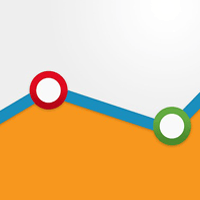The Journey to Universal and User-Centric Analytics

Today's digital media consumers are far different than their dial-up predecessors, as they are afforded greater and more efficient access to information. These nimbler, data-hungry users, however, have been difficult to track (as a result of multi-device and broad channel usage), forcing digital companies to evolve their approach to data measurement to a more user-centric approach.
The Evolving Fifth Element Earlier this year, Microsoft released a study that examined why consumers are using multiple devices, the motivations that drive simultaneous or sequential usage across those devices and what marketing opportunities exist today. The findings revealed how consumers are now almost fully in control of their own flow of content and what online marketers can do about the resulting experience if they're smart and act fast.
For example, Microsoft suggested that marketers tailor messages to users throughout the day and to the four different (and very distinct) pathways consumers typically follow: content grazing, spider-webbing, social spider-webbing and the very scientific-sounding "quantum journey." These media consumption styles define how, when and on what device users interact with brands digitally. So how should the average Internet business approach (and understand) these more connected, informed consumers?
In its report, Microsoft provided some practical examples such as connecting users with commercial content, which can be consumed in small bites via Bing, and casual gaming apps at one time of day. Then in the evening, help consumers investigate or communicate deeper through Windows 8 Ads in Apps, MSN Video and interactive rich media ad units such as the new IAB standard Filmstrip unit.
As you can see, Microsoft is envisioning a relatively sophisticated approach to digital marketing. The company certainly has the resources to develop and support such a ubiquitous media/advertising platform (e.g. think deeper Bing Ads and Xbox integration) and generate positive results for those enterprises that take the leap; but the future, in many respects, is already here.
Google is actually leading Web professionals on the more data-rich quantum journey by enabling companies to track any manner of events initiated by users, and now, in a more "universal" and realtime manner (wsm.co/realtimeinga). This more user-centric approach can provide immense value to enterprises hitchhiking their way through the Web galaxy.
Universal Analytics : The Future is Now Google's recent release of Universal Analytics is arguably one of the first significant steps toward truly understanding the behaviors of individual users. How is that possible? Isn't digital data today anonymized and private?
One of the reasons that many of the digerati are excited about the potential of Universal Analytics is not in what it does (tracking multiple devices is great and all, but that alone doesn't provide much in the way of actionable data). No, the real value is in Google's new Measurement Protocol, a way for Google Analytics users to send their own customer data to the platform for use in analysis.
Track The Cart: Review See who's big in big data









